Australia ag commodity prices and the Australian dollar
The higher Australian dollar has prompted questions about the likely impact on local extensive agricultural commodity prices. Mecardo has covered...
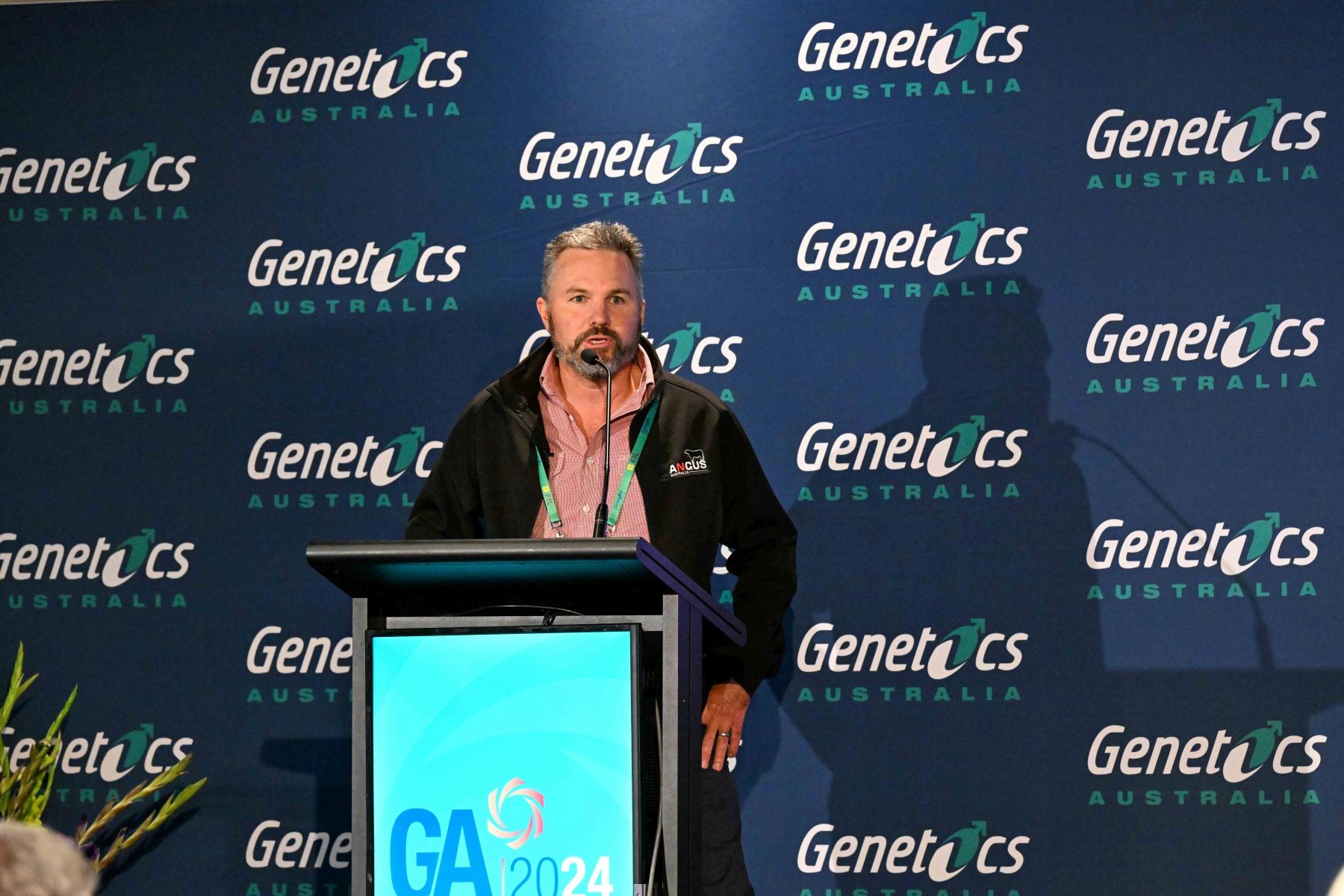
From importing offshore genetics to editing cattle DNA, here are six key things that experts at GA|2024 believe will change your livestock business.
Of the top 20 performing bulls in Australia in the past year, 14 were Australian bred and six were imported. However, of those 14 Australian-bred bulls, eight were sons of imported sires from the US.
The previous year it was half of the top performers came from the US and the other half from Australia.
Angus Australia has been benchmarking the national herd in the Angus Global Evaluation since 2023. The evaluation takes data from the US, Canada, and Australia, which also includes some New Zealand data.
Angus Australia General Manager Genetic Improvement Christian Duff, who addressed GA on the topic “Unlocking international opportunities with the World Angus Evaluation” is hopeful this process will open up international opportunities to export Australin semen – something he said traditionally Australian beef exporters had not been great at.
Of the top 300 sires listed, 188 sires came from Australia for claw set and 82 for marbling.
“I think it revealed Australia has something to show the world.”
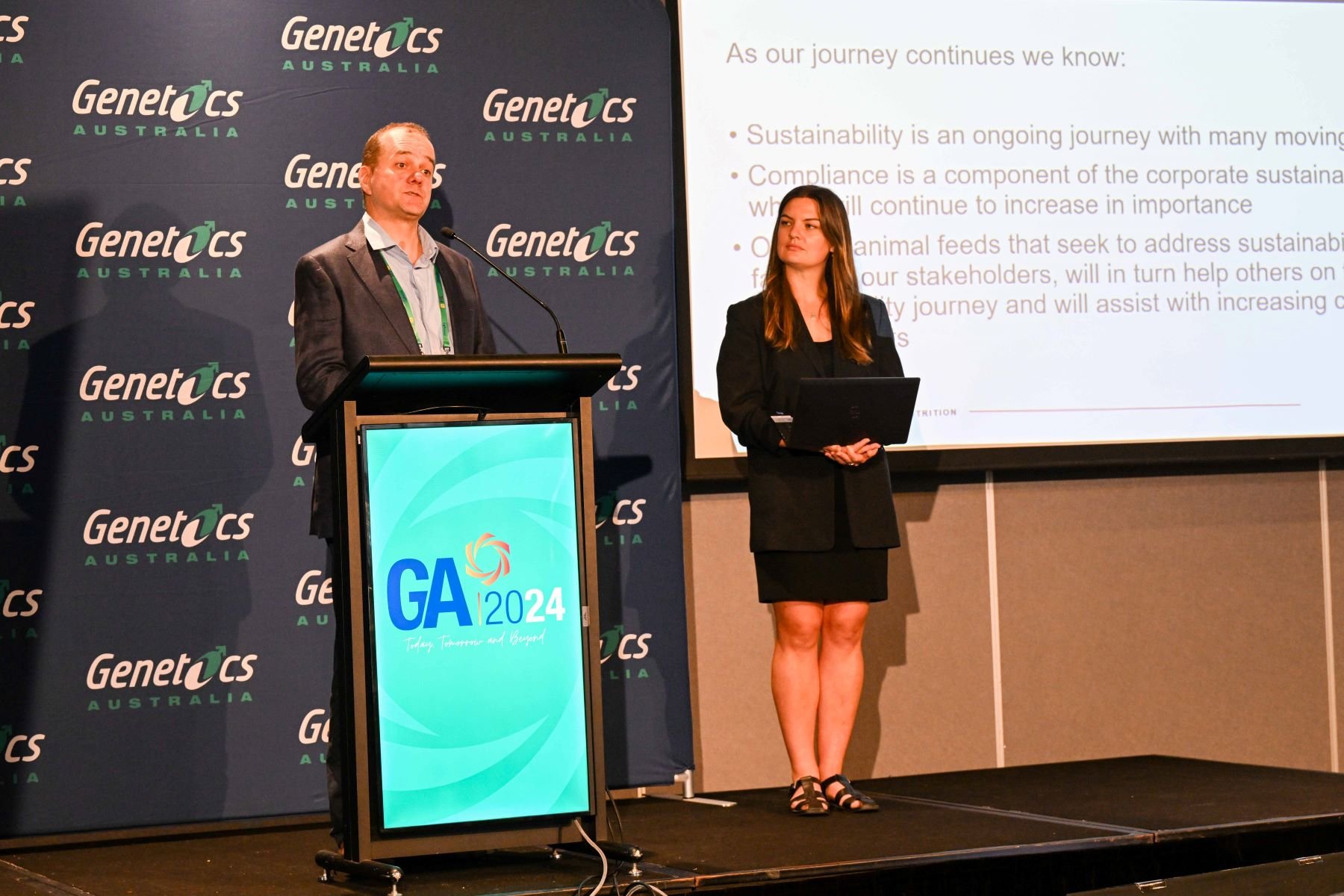
Ricardo Esquerra.
Ridley General Manager, Nutrition and Technical, Ricardo Esquerra said that profit had to be part of sustainability.
He outlined that the company now had a library of supplements to lower methane production in ruminants, but it wasn’t as simple as just adding it to feed mixes.
The understanding of diet changes a producer can make to reduce emissions was a journey, with products, research and legislation changing.
“If customers want a diet that is particularly lower in C02 intensity we can formulate that for them,” Mr Esquerra said. “It might not be lower costs, but it will be lower C02.”
Prohibitive costs have led to a lot of greenwashing in the industry, which he warned farmers about.
He also said there were options to remove some ingredients to meet customer needs.
“Sometimes you can remove a specific ingredient. It may hurt you in production and costs, but what is your arrangement with your customer? You’re probably getting a better price.”
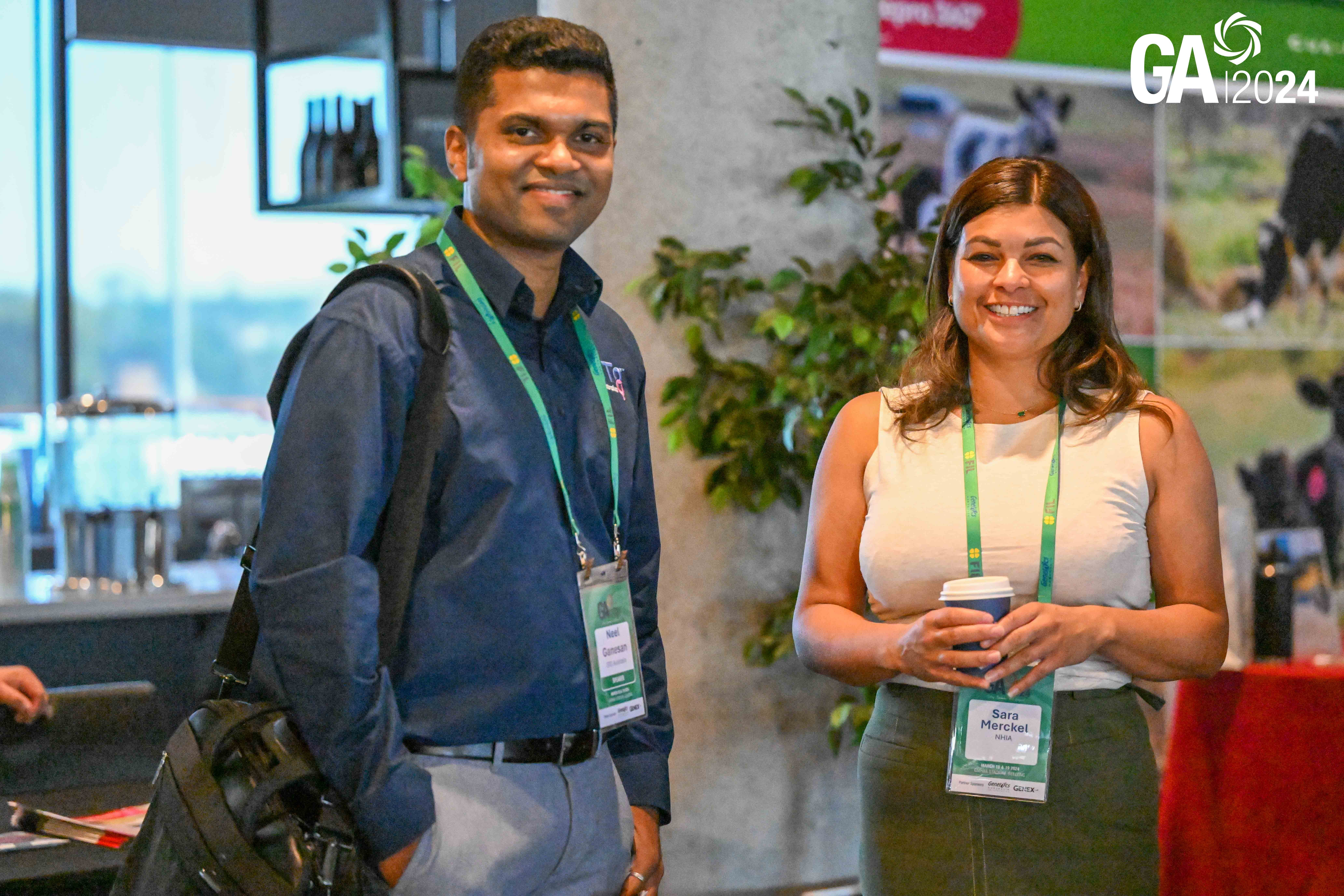
Neel Ganesan (left).
Neel Ganesan, Laboratory Manger at ST Genetics Australia, spoke about factors that influence the success of Artificial Insemination (AI), outside of the supplied semen.
Other important factors:
Timing is everything. If you’re too early or too late it will lead to poor conception rates.
Nutrition of animals, including donor animals, is important.
Animal management practices, including how animals are detected for heat, what AI systems they have in place and how they are managing heat tolerance of animals, must be optimised.
The handling of semen straws can have a huge impact on the success rate – heat and humidity in particular.
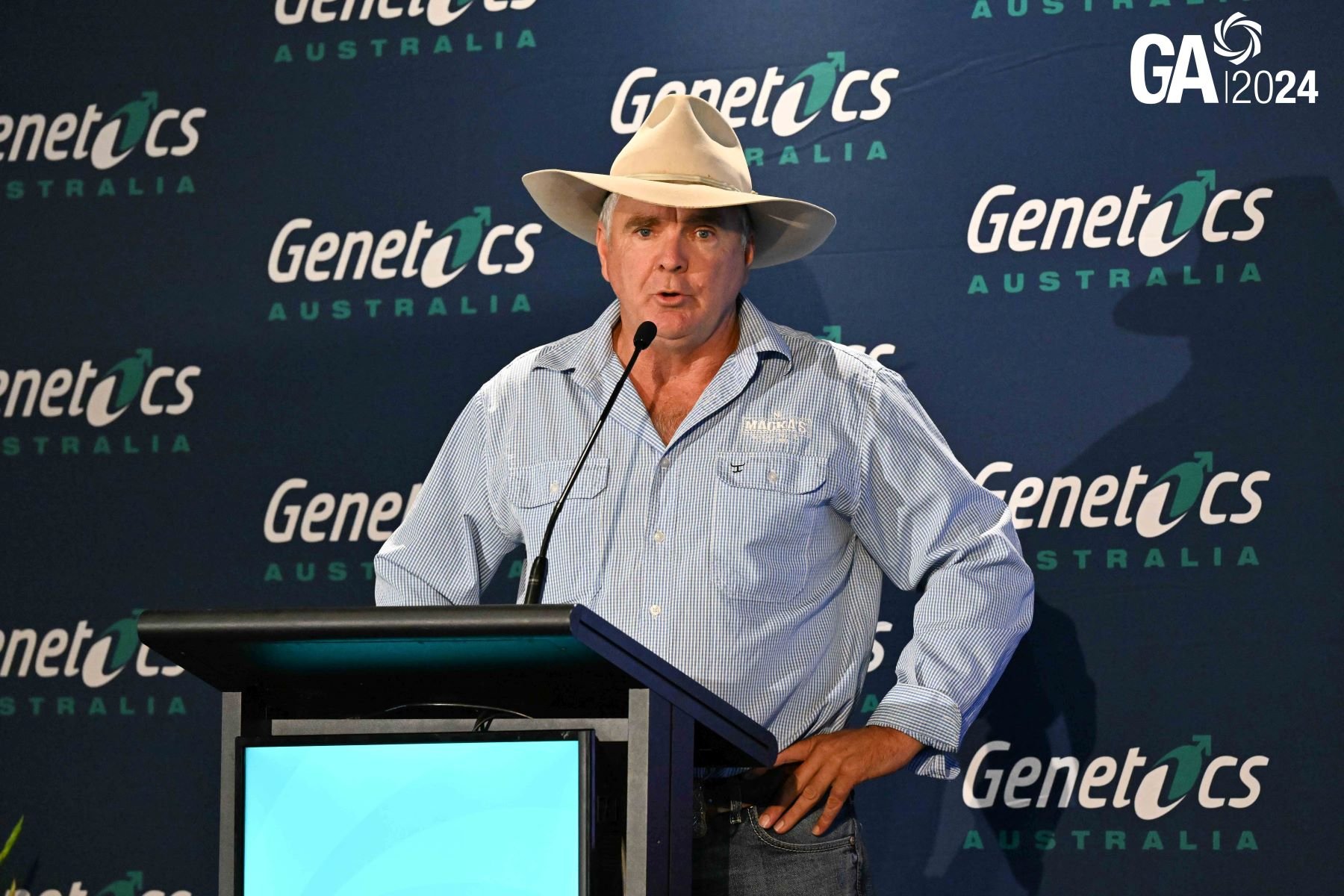
Robert MacKenzie.
Macka’s Black Angus Managing Director Robert Mackenzie was asked why he had spent so much time and money on making his farm carbon neutral from the paddock to the gate.
He knew his answer, but was a little choked up explaining something that was clearly so very close to his heart.
“I want to leave it in a better place for my kids,” he said, wiping his face and to a big clap from the audience.
He went on to say that while he’s not paid more for his carbon neutral product, yet, it is opening doors.
“There has also been so many other advantages, the water holding capabilities of extra carbon in the soil, soil health, animal health are just some.”
Macka's Angus female sale starts at 11am on Thursday, March 21 via AuctionsPlus
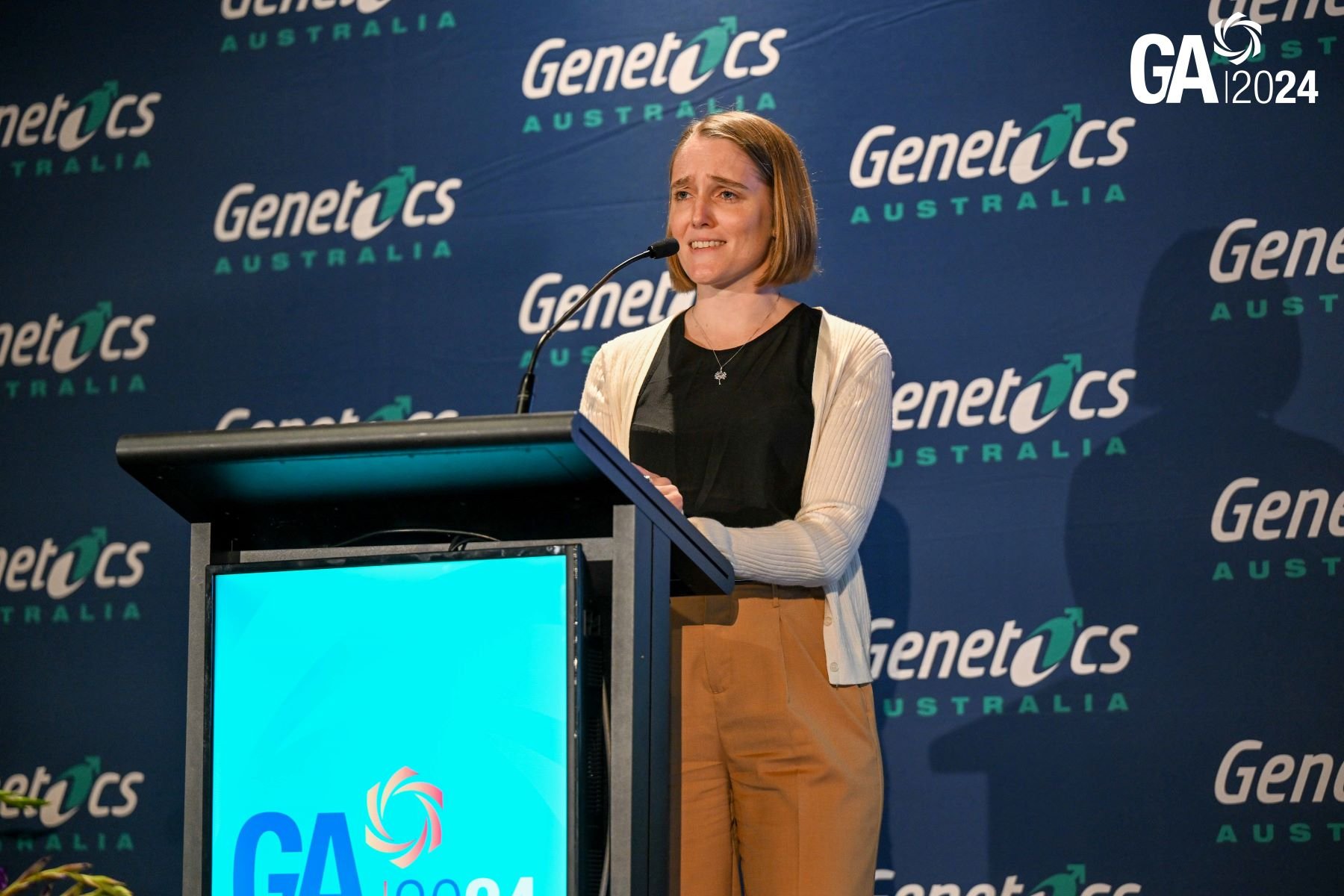 Dr Jo Newton.
Dr Jo Newton.
The role of genetic improvement in creating greater integration between our dairy and beef industries was presented by Dr Jo Newton a Research Scientist from Agriculture Victoria.
She said that dairy farmers focus on calving ease, fertility and gestation length, but that selecting bulls on these alone was not enough.
Rather there was an opportunity to use beef genetics – which have the same calving ease – but also bring economically significant improvements in growth and carcase rates that those further down the supply chain need.
“This will improve the profitability of beef from dairy production to deliver calves that can perform in the supply chain,” she said.
“Dairy beef progeny from beef sires with high genetic merit for carcass traits have greater carcass, economic and environmental efficiency.
She also said research had shown that Angus cross steers finish one month earlier than dairy steers and have a higher net margin, as well as lower feed costs.
“Bull choice matters and we can pick a bull for the beef supply chain without compromising calving ease on farm.”
However, she said in Australia there was a limiting factor because dairy beef indices were often in private or genetic company hands.
She would like to see priority given to establishing pipelines to collect data on dairy beef progeny as well as better understand existing tools and consider the need for new tools to identify bulls for local markets.
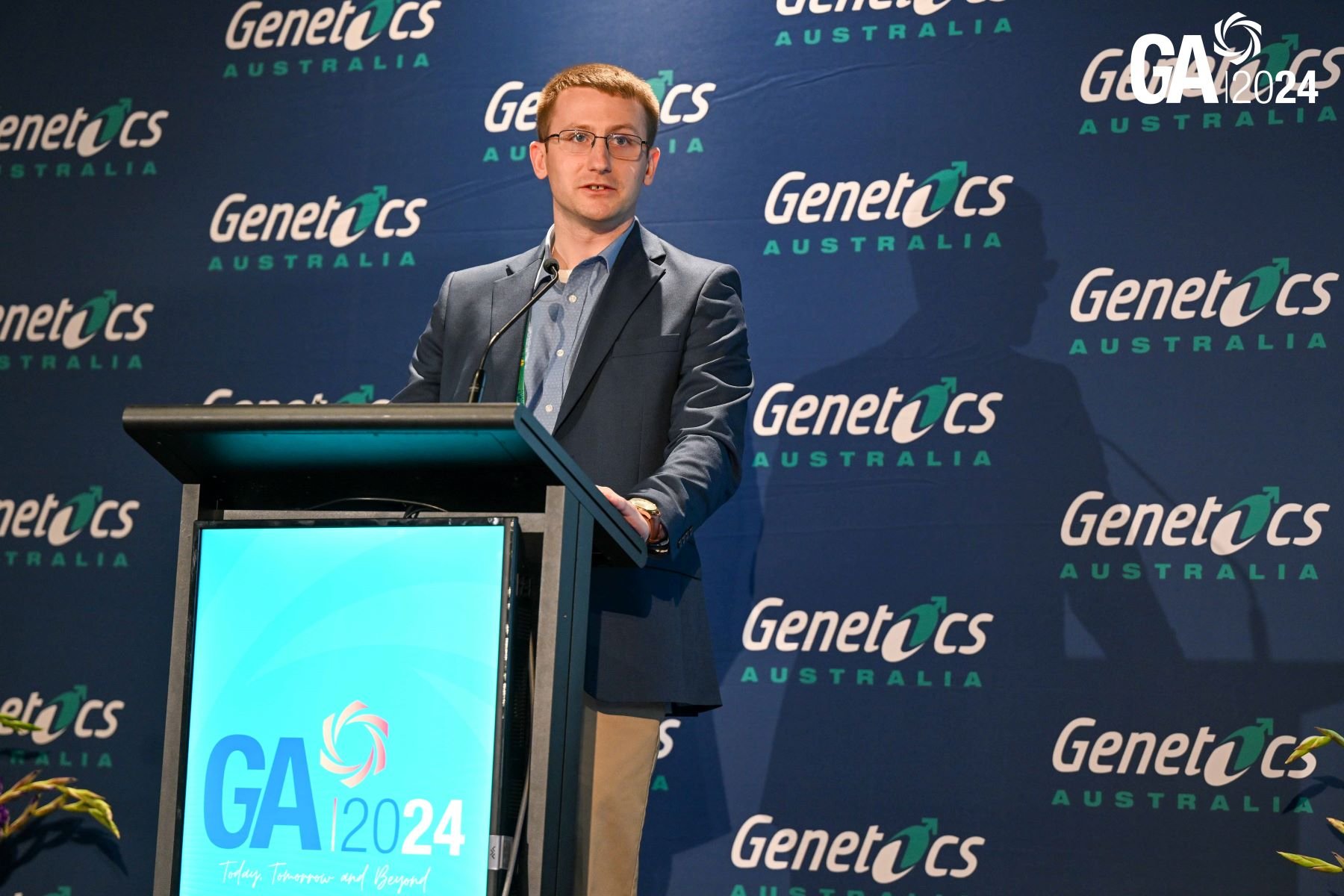
Michael Schmitt.
Peak Genetics Director Michael Schmitt said the technology for gene editing had recently started to be used in the US and that modelling of the optimised cow showed that "we're a third of where we can get to”.
Last year the FDA ruled that there are no safety concerns associated with gene editing cattle.
However, Mr Schmitt said negative feedback from consumers would determine how much it was used
“It’s approved by regulators, but consumers are cautious about it,” he said.
Meanwhile, he said genetic selection would play a role in addressing environmental concerns, with a focus on more efficient cows that will emit less, due to traits for methane output, methane efficiency and lower maintenance requirements for smaller cattle.
He said longevity, or lifespan, would also be part of the solution.
“We will need to balance between age and profitability because younger cows have better genetic potential but older cows are more profitable.”
GA | 2024 Today, Tomorrow and Beyond was held in Geelong this week. APlus News was a media partner for the conference.
.png)
The higher Australian dollar has prompted questions about the likely impact on local extensive agricultural commodity prices. Mecardo has covered...
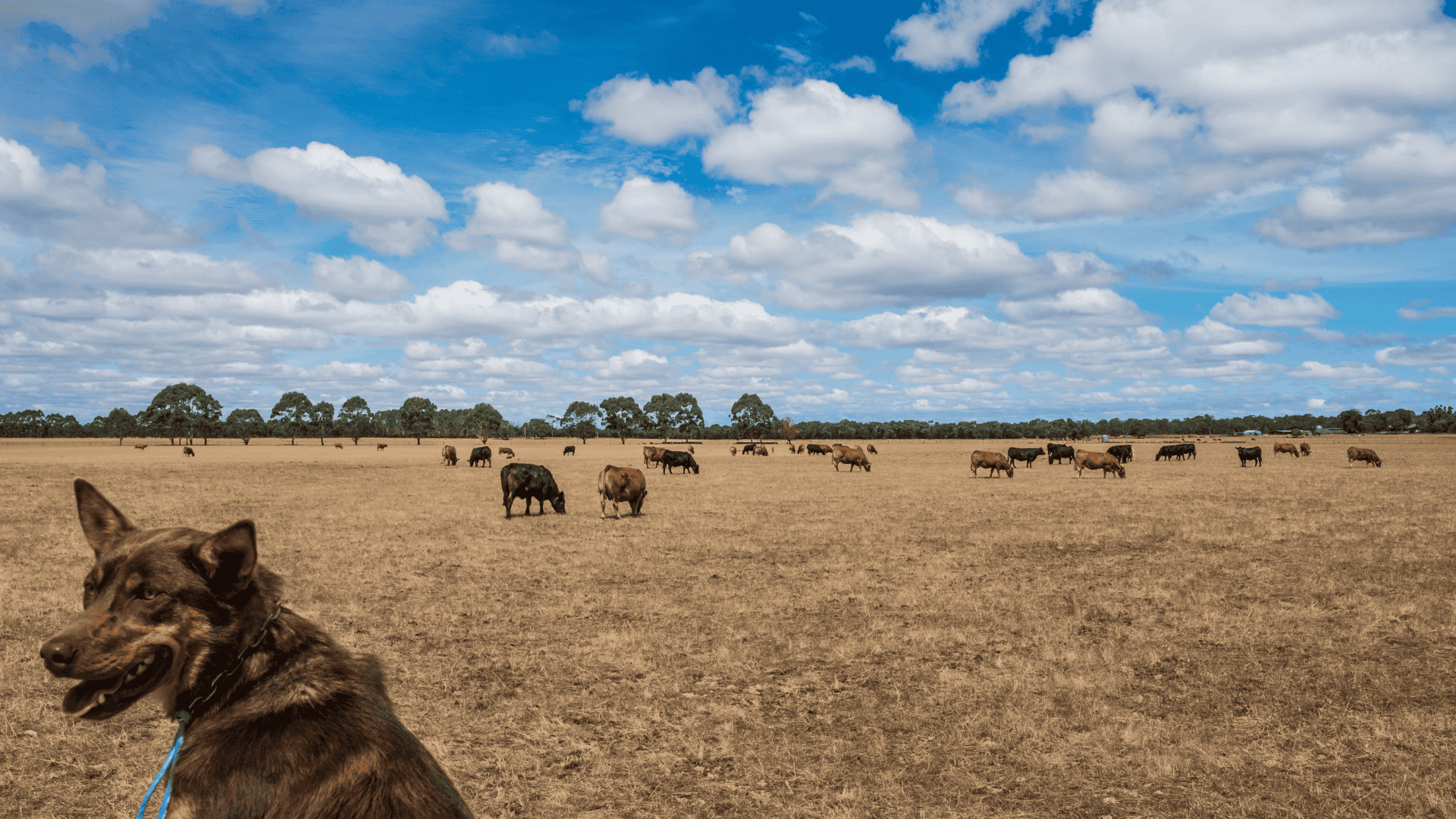
Last week, StoneX released its H1 2026 Australian Cattle & Beef Market Outlook report, which covers all key production forecasts for the beef...
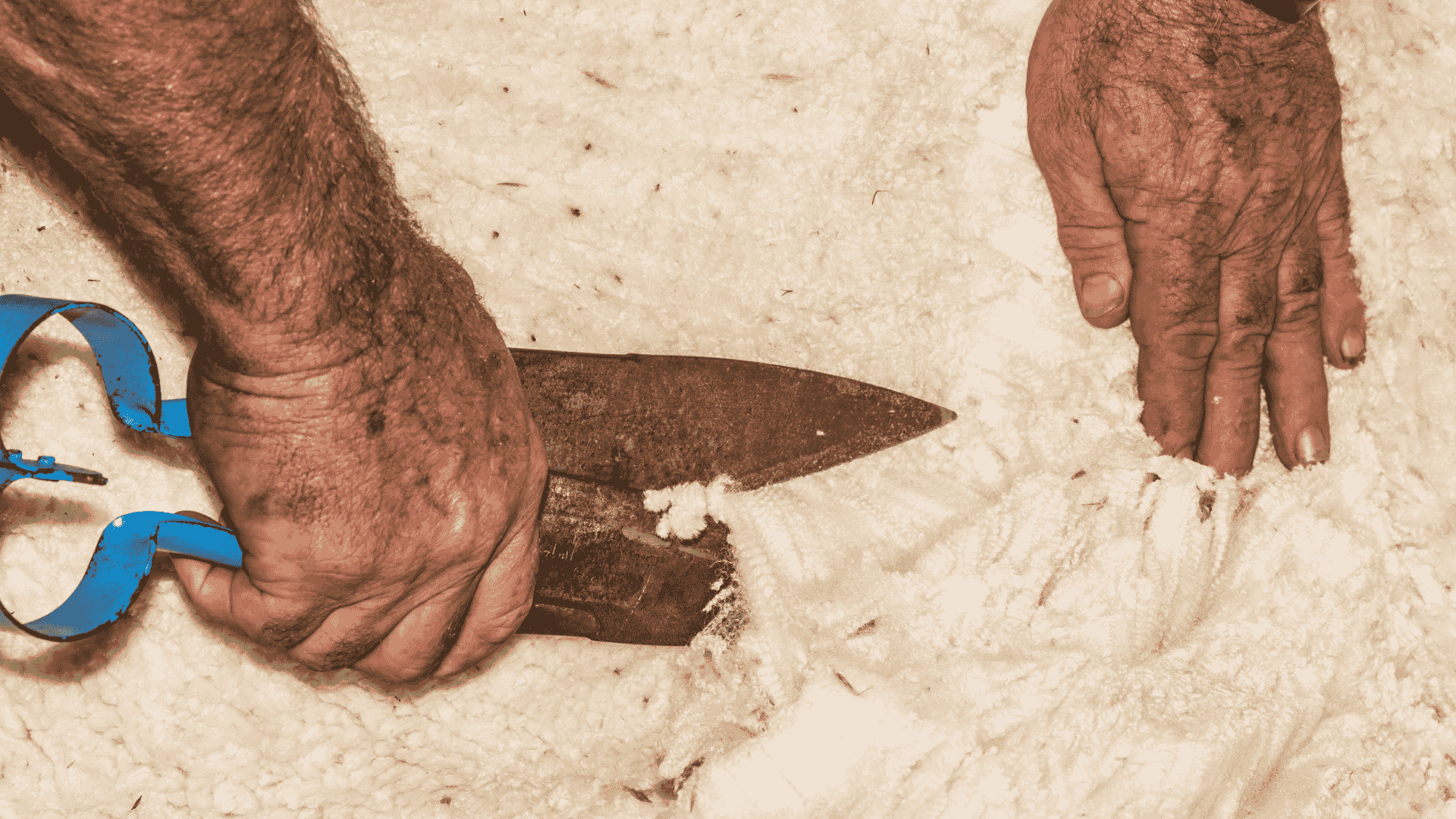
Greasy wool prices have increased markedly this season, in the absence of any substantial improvement in macroeconomic indicators or major apparel...